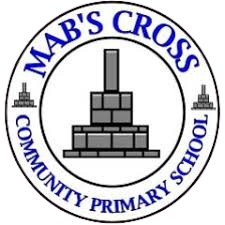History
Mab's Cross Primary School
History
Intent
At Mab’s Cross, we aim to inspire children’s curiosity and interest in the past. Children should leave Mab’s with an understanding of how people and events in the past have shaped how we live in modern Britain. Our curriculum is enquiry based; we view history not only as simple facts and dates, but as a chance to explore the past using a wide range of sources, and the local area. Each lesson is framed by a question which the children are able to answer after reviewing the lesson materials. Within EYFS and Key Stage 1 and 2, the history curriculum has been carefully designed, planned and sequenced alongside resources from Curriculum Maestro, which ensures our topics are progressive, engaging and that learning is mapped to ensure comprehensive coverage of national expectations. Key concepts run throughout history, such as hierarchy and power, monarchy, everyday life, invasion, settlement, civilisation, significant people and events. Our topics begin with an Engage step, in which children experience an exciting trip within our local area, or a visitor or workshop at school. This allows them to build excitement and curiosity, as well as handle artefacts and see historical locations in the flesh, helping to bring the topic to life. This allows our children to increase their cultural capital. The Develop stage is where the children learn about the topic being studied, gaining knowledge, vocabulary and understanding of the topic. Here, children examine and analyse historical sources and learn how historians and archaeologists find out about the past. We focus strongly on the causes and consequences of historical events to promote true understanding rather than recitation of facts and dates. The Innovate stage allows children to show what they have learnt by producing a piece of writing. This allows children to show that they have retained knowledge of their topic, and demonstrated deeper understanding by sharing their opinions based on what they have learnt. Finally, the Express stage allows children to celebrate their learning and share it with a wider audience, either their families or other classes in school. Assessment is used to guide future teaching, with questioning based on prior learning taking place at the start of each lesson, the extended piece of writing and an end of topic quiz giving teachers a good understanding of the needs and strengths of their class.
Implementation
Carefully sequenced medium-term plans ensure that learning is progressive and the quality of teaching is consistent throughout school. All year groups experience at least three visitors or trips throughout the year to engage them in their topic. Knowledge organisers are used during the develop stage of the topic to help children to retain key information and vocabulary, and they are also used as a formative assessment tool, as teachers use them to question children on prior learning and address any gaps or misconceptions. Children regularly examine historical sources to understand the role of a historian and gain an understanding of how historians and archaeologists find out about the past. They discuss historical bias and how it should affect how we interpret sources. Children regularly discuss the causes and consequences of historical events to give them the tools to answer enquiry questions. The innovate stage is supported by learning in writing, so that children are able to express their knowledge and opinions in a well-structured manner. Regular monitoring, including book looks and pupil voice interviews, take place so that subject leaders are aware of how successfully the long and medium term plans are being implemented, and can address any emerging training needs and provide or source appropriate CPD.
Impact
Trips and visitors engage children in their current topic and provide context for their learning. They also help children to retain knowledge, with the exciting experience creating a long-lasting memory which will last throughout their lifetime. Use of enquiry questions and historical sources allows children to behave like historians, developing critical thinking and inference skills which can be applied to future lessons, but also other subjects. Assessment tools allow teachers to address misconceptions and ensure that knowledge is fully embedded before moving on to a different topic. This ensures that children can recall key facts, but also retain key terms and vocabulary such as monarchy, hierarchy, civilisation etc, which will help them in future topics and year groups. By the end of Key Stage 2, children will have secure knowledge of important historical figures, key events in Britain’s history, and the progression of Britain from the Stone Age to 1066, as well as times of change and development such as the Victorian period and the industrial revolution. They will understand how historians work, and be able to use some of the key skills of historians and archaeologists.
